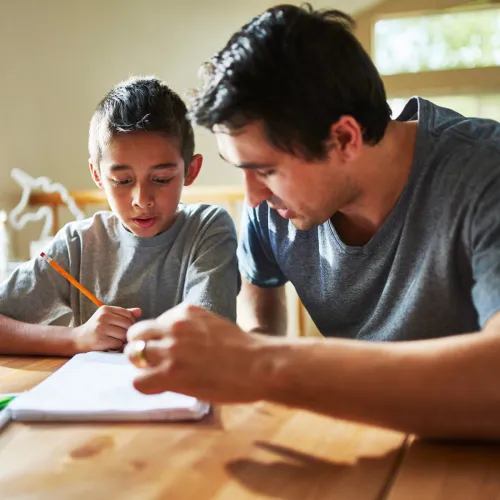Are Your Kids Being Affected By Your Stress?

No one is immune to stress, whether you're an adult or a young child. Stress creeps into our lives in so many ways, some of which we can't really control. This is often the case when one person's stress rubs off on someone else. While it would be easy enough to separate yourself from the person who is stressed out to stop it from affecting you, kids can't do this when it's their parents' stress that's getting to them.
In a recent study, researchers investigated the connection between parenting stress and child behavior. Studying more than 200 children ages 3 to 9 and at different stages of development, their results supposed the fact that parental stress can, in fact, lead to behavioral problems in children.
These results might not be shocking to you. But when thinking about your household, habits that are transferring your stress onto your kids may be hard for you to recognize right away. So how can you tell if your kids are being affected by your stress?
Signs of Stress in Children
Significant changes, like their parents' separation or divorce, can leave kids experiencing stress that is hard to overcome. You and your co-parent are the ones going through the divorce, yet in reality, your kids are right there with you experiencing it all in their own way.
Stress in children manifests itself in a number of ways, depending on their age and level of development. Young children may have a hard time staying asleep, wet the bed, cry frequently, or become clingy with one or both of their parents. Signs of stress in older children may appear differently such as in headaches, stomachaches, feelings of loneliness, and difficulty concentrating.
Stress affects every person differently, so while you should take these signs into account, always remember who your child is when they are at their best. If something feels off about their personality, stress could be getting to them.
Stress Spreads From Person to Person
Taking measures to prevent unnecessary stress is crucial. You won't always be able to stop stress from affecting your kids altogether, but you can have some control over the amount of your stress that spreads onto them.
Maybe you've experienced it before: when you're with a friend who is stressed out, their expressions and mannerisms during that time can create feelings of anxiety in you. In this case, it may be easy to remove yourself from the situation by saying goodbye to your friend, for now, knowing that you'll reunite later.
When stress spreads throughout your own home, it can be harder to escape its contagious effects, such as is the case with children and parents. Kids might escape to their bedroom for some time, but that's not very far away from the stress that is affecting others in the home.
Reduce Your Stress, Lower Your Child's Stress
As a parent, taking measures to uphold your child's wellbeing is essential. Working to reduce stress in your household overall is a critical step in promoting your child's health. In doing so, you must consider how you can reduce your own stress that is likely rubbing off on your child.
A separation or divorce can create stress that is hard to overcome, yet it's not impossible to do so. Think about what you can do to improve your situation. If conflict or lack of clarity in your co-parenting has affected your stress levels, take measures to improve your communication. Poor communication can often be a source of conflict, so making an effort to always communicate clearly and concisely can lead to more effective exchanges with your co-parent.
If you feel like your social life is off track, work to reclaim it. This will help to create an outlet for you of friends that you can vent to when you feel stressed and also enjoy some fun, stress-free moments outside of your home.
As you work to lower your own stress levels, you will hopefully notice a change in your child's personality for the better. Even so, keep an eye on how they are doing. Try to engage your child in conversations about how they are feeling. Encourage them to keep up with things they enjoy such as afterschool activities or spending time with trusted friends.
If you notice that your child can't seem to shake their stress, consider speaking with a counselor or a therapist. It's possible that both you and your child could benefit from speaking to an expert who can offer guidance to help lower your stress levels. Don't hesitate to get yourself and your child the support you could use to reduce stress in your lives.
Because children are affected by their parents' stress, it's important for parents to do what they can to reduce their own stress in order to also reduce stress in their child. Understanding the signs of stress in kids of different ages and utilizing healthy strategies for minimizing these effects will help your child, as well as yourself, move forward with more success.



